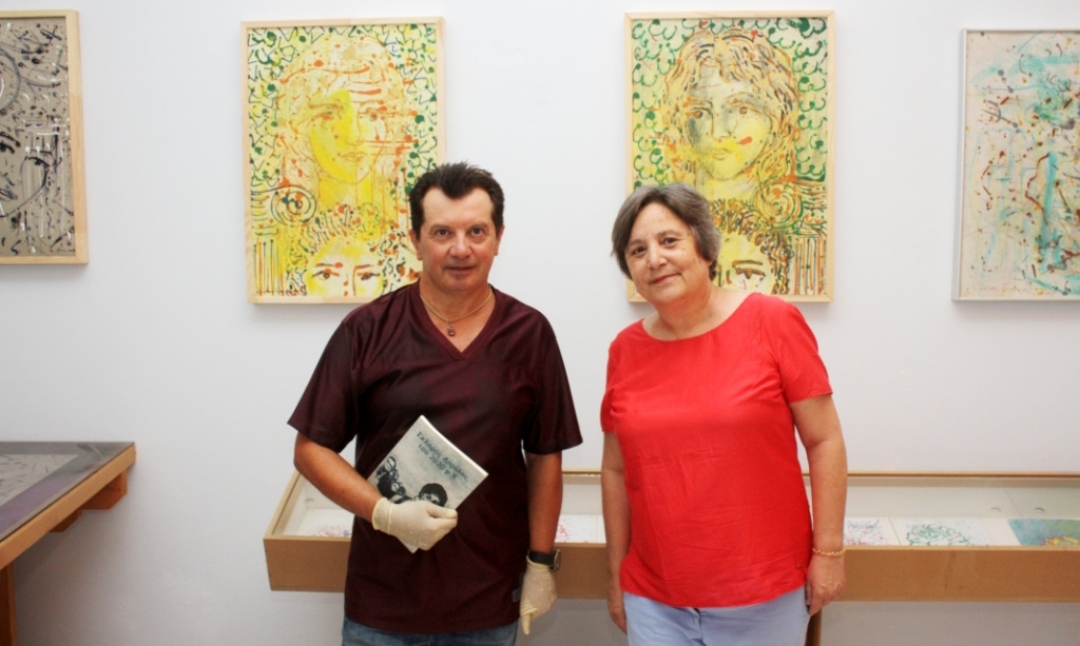Επιμέλεια: Εύα Πετροπούλου Λιανού
The philosophy of choice
Choism and its questions in the field of philosophy
Introduction
Philosophy is the mother of all sciences. Cicero
This new series of articles is a continuation of the cycle of 10 articles “Questions of choice”. In the articles published earlier, we considered the topic of art more, but now art will be more of an auxiliary tool, and the main topic will be the philosophy of choice (choism).
But about everything in order. So, today choism (early choism) is a young and new trend in literature and art, not yet widely known, but already preserved and entrenched in the form of choistic works, articles, ideas and thoughts, and, of course, possessing some fundamental characteristics, principles and (not yet very developed) philosophy.
And what is philosophy in general? By definition, it is the study of general and fundamental questions, such as questions about existence, reason, knowledge, values, mind and language. Obviously, for сhoism, the main issue will be the choice, but it will cover more than just a few paintings or novels. Therefore, the purpose of this new series of articles will be the gradual analysis and formation of the philosophical school of сhoism.
Let’s start with school… Another definition immediately emerges, quite well-known from all sorts of journalistic articles and the media, but still not the most every day.
A philosophical school is a form of philosophical community characterized by the unity of views, attitudes, some rules and techniques characteristic of its representatives. It is clear that to create an entire school, you need a little more than one person with a couple of beautiful ideas, but you also need a base to build a really enthusiastic and thinking community, so it is extremely necessary to characterize the views, rules and techniques.
Let’s continue this thought. A view of the world through the question of choice, perhaps not the newest. People are faced with a choice every day, and this has been the case since primitive times and it is logical to assume that it will also be in the future. However, if you put the choice of a person in the center of the field of thought, the topic becomes much more interesting. After all, it is choice that separates the past and the future, decision and consequences, thought and matter, black and white. In this case, the choice literally turns into a connecting node that determines the position of a person throughout his life, presenting him as a point on the map of information and matter.
Of course, such a view will not be very banal and interesting in its own way. It will open the boundaries for thought, change the scale of life and its roles, update logic and lead to new conclusions.
As for the rules, the main rule for choice will be the acceptance of choice itself, but without going into deep analysis and considering early choism, perhaps the rule will be the display of the possibility of choice. A vivid and noticeable combination and opposition (black and white) of two, three or more possible options and a call to consider each of them, a look through the prism of their essence and, as a result, a change of representation and the discovery of new depths and dimensions in what seemed flat and unambiguous.
In conclusion, a few words about the methodology. In part, this issue was disclosed in the rules, since early choism is still quite limited in its capabilities, the only method of reflecting the question of choice can only be summing up to the need to choose, that is, a visual demonstration of different options. For example, choosing a color from the rainbow palette or combining reality and fiction, etc.
Thus, we can say that the basic school of early сhoism has already been characterized and has a sufficient number of distinctive features and leading forward principles. The stage of transition from choice in art to choice as a general and fundamental issue in a person’s life was also important. But to analyze the choice in a person’s life, we first turn to the history of choice, and we will consider this topic in the next article.


































